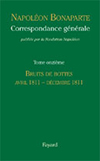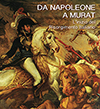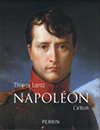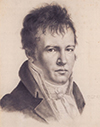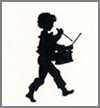| |
| |
EDITORIAL
NEW BRICK IN THE PAPER EDIFICE: VOLUME 11 OF NAPOLEON'S CORRESPONDENCE
In step with the end of the great bicentenaries and the prestigious St Helena operation, the Correspondence Project faithfully fulfils here its annual appointment with volume 11 (in bookshops from 25 November!); one more brick in the paper edifice which we have patiently been building since 2002! This volume covers the months April to December 1811, a period when it seemed that the Emperor was at the peak of his power and influence and that everything he turned his attention to had a happy outcome. The 3,133 letters, with commentary by Thierry Lentz, follow the glories of the Empire and the reign of Bonaparte dynasty, that looked like they would last forever. But there was a ‘dark side' to that 1811. Like a Jedi and a Sith from the Star Wars films, Napoleon and Alexander were sizing each other up before the fight. In the diplomatic antechambers, the games of dupes was coming to an end, and both sides were preparing for the conflict as war clouds gathered over the continent. No different from the previous volumes of Napoleon's letters, this one here was once again an adventure and a team performance, with the Corresponding Members (those who prepared the manuscript for publication or indexation) the corner stones: once again, a big thank you to all those who toiled behind the scenes. The publication of this eleventh volume finally fills the gap left by the anticipated publication of the 1812 volume in 2012, to coincide with the bicentenary of the Russian Campaign. In November 2017, we will back on chronological track with the first volume for 1813 (January-June), which Pierre Branda has already been annotating now for several months. But we'll be talking about that nearer the time. In the meantime, though the publication of this volume is unlikely to generate as much excitement as the arrival of «Star Wars VII – The Force Awakens» on our screens here in France in December, we are sure that all those interested in Napoleon and who follow the work of the Fondation will find much that is new and stimulating.
Enjoy your read!
François Houdecek
Manager of the project for the publication of the Correspondance générale de Napoléon Bonaparte

|
|
|
| |
BOOK OF THE MONTH > CORRESPONDANCE GÉNÉRALE DE NAPOLÉON BONAPARTE, VOLUME XI: BRUITS DE BOTTES
The eleventh volume of the Fondation Napoléon's edition of the General Correspondance of Napoleon Bonaparte, directed by Thierry Lentz, covers the period from April to December 1811, during which the Emperor's military preparations on the continent were intensified in mid-April. Thierry Lentz's introduction (translated into English) can be read here.
It will be available in bookstores from 25 November so place your orders now!
FONDATION NAPOLEON CERCLE D'ETUDES LECTURES
Napoleonic re-enactor Franck Samson will give a talk (in French) about his ten-year “reign” in the role of Napoleon I: “bilan et histoires d'un règne de dix ans”, on Wednesday 25 November at 6pm at the Fondation Napoléon. Sign-up (obligatory) from 12 November. See the autumn programme here (in french).
To whet your appetite have a look at the interview Franck gave to the Fondation Napoléon's Marie de Bruchard earlier this year (in English).
FONDATION NAPOLÉON HISTORY PRIZE
On the 9 November, the Jury of the Fondation Napoléon History Prize will meet in order to choose the 2015 prize-winners. The winners (as well as the recipients of this years study Grants) will receive their awards at a special ceremony to take place at the German Embassy in Paris on 9 December. See the list of the shortlisted candidates here.

|
|
|
| |
INTERNATIONAL NEWS
> THE NAPOLEONIC MUSEUMS ON ELBA (ITALY) HAVE A NEW DIRECTOR
The Napoleonic Museums on the island of Elba have a new director, Gabriele Nannetti (external link in Italian). Ex-director of the Museum of Still Life at Poggio a Caiano, signore Nanetti replaces Alba Macripò who moves on (after only a year or so) to direct the Palazzo Reale and the Museo Nazionale di San Matteo in Pisa. We wish the new director all the best at the head of the third most important museum (in terms of visitor numbers) in Tuscany!
> EXHIBITION: DA NAPOLEONE A MURAT: L'INIZIO DEL RISORGIMENTO ITALIANO, FORLIMPOPOLI, ITALY
In this Bicentenary year of Murat's death and of the Proclamation of Rimini in 1815, in which Murat called on Italians to revolt against their Austrian occupiers, this exhibition at the former Rosetti Asylum of Forlimpopoli, is a unique opportunity to find out about the role of Romagna during the Napoleonic era and the figure of Joachim Murat, King of Naples and Marshall of the Napoleonic Empire. Throughout the period of the exhibition there will be guided tours, workshops for kids and thematic conferences!

|
|
|
| |
BOOKS
> NAPOLÉON L'ALBUM
In this, the highlight of our Christmas Reading Selection (to be published in a future Bulletin), the illustrations are not a distraction: Thierry Lentz's concise but rich commentaries (in French) show how these representations reveal valuable knowledge about the life of the Emperor, from his youth as a "child of the eighteenth century" to his fall from grace. The album ends with a chapter devoted to the "century of Napoleon."
> EUROPEAN ARMIES OF THE FRENCH REVOLUTION, 1789–1802
In nine essays by leading scholars, this new anthology edited by Frederick C. Schneid provides an authoritative, continent-wide analysis of the organization and constitution of the armies – of France, Prussia, Austria, Russia, Britain, Spain, the German principalities, the Italian states, and the Ottoman Empire - the challenges they faced, and the impact they had on the French Revolutionary Wars and on European military practices.
> WATERLOO BETRAYED: THE SECRET TREACHERY THAT DEFEATED NAPOLEON
In the immediate aftermath of Napoleon's defeat at Waterloo, many French considered treason as the primary cause. But over the next 100 years, a conventional narrative of the campaign coalesced. Focusing heavily on the most thorough collection of French military correspondence ever assembled in a single work Stephen Becket's book presents a new narrative that argues that Napoleon was massively betrayed during the Waterloo campaign and only this treason prevented a decisive victory.

|
|
|
| |
"THE NAPOLEON OF SCIENCE"
Everyone's heard of Napoleon but how many people today know anything about his contemporary, the geographer, naturalist and explorer, Alexander von Humboldt? His contemporaries considered Alexander von Humboldt the most famous man in the world after Napoleon. Perhaps then not surprisingly Napoleon himself was suspicious - maybe even jealous - of Humboldt, and in 1810 ordered Savary to have him thrown out of Paris within 24 hours. He changed his mind after a discussion with Jean-Antoine Chaptal, in which he asked whether Humboldt was "really necessary for France"; Chaptal replied "it would be a cause for national mourning if he left us". (quoted in "Mes souvenirs sur Napoléon" by Jean-Antoine Chaptal).
A new biography The Invention of Nature: The Adventures of Alexander von Humboldt, the Lost Hero of Science by Andrea Wulf includes a chapter about Paris and Napoleon, and in a recent article for the Independent the author discusses the legacy of the man who discarded a life of privilege to discover for himself how the world worked. (image: self-portrait by Alexander von Humboldt, 1815, aged 45). Humboldt also left a remarkable eye-witness description of Napoleon and Josephine in 1798. Fascinating!

|
|
|
| |
> WATERLOO OPERA PREMIERS AT ALDEBURGH (UK)
"The Drummer Boy of Waterloo", a new children's opera written to mark the Bicentenary of the battle of Waterloo will have its world premiere at the Aldeburgh Jubilee Hall (UK) on Saturday 7 November at 3pm and 6pm and Sunday 8 November at 3pm. Here is an interview (external link) with Megg Nicol who co-wrote the opera with composer David Stoll.
150 YEARS AGO > THE FRANCE-MONACO CONVENTION
The treaty between Monaco and Paris on 9 November 1865 forms part of an eventful year in French-Monegasque relations. Monaco was first annexed by France in 1793 under Napoleon I and would remain so for twenty-one years until the peace treaty of 1814, when Grimaldi rule was re-established and Monaco became a French protectorate. This, however, would prove to be just a brief moment in Monaco's history; the Congress of Vienna was to place Monaco under the control of the Kingdom of Sardinia in 1815.
It was only in 1860 that French influence in Monaco was restored as a result of the defection of the towns Menton and Roquebrune to France – the Franco-Monegasque treaty signed the following year enshrined the transfer of the towns and, in return, Monaco's sovereignty of state. Four years later, a treaty dated 9 November 1865 ensured trade links between the two countries, and this Customs Union has lasted to the present day – through France, the currency in Monaco is currently the Euro. Similarly, the 1865 treaty ensured open borders between the two countries, an act that would mark the influx of French citizens to Monaco that is still ongoing.
Reminder: in January 2015, Prince Albert II of Monaco generously gave to the Fondation Napoléon Marchal Lannes' field writing case, which had previously been in the Prince's Napoleonic collection.
Wishing you an excellent Napoleonic week!
Peter Hicks and Rebecca Young (with Tiara Ataii)
THE NAPOLEON.ORG BULLETIN No. 777, 6-12 November, 2015
Interested in the work of the Fondation Napoléon? Why not participate, either generally or towards a specific project, by making a donation?
© This Napoleon.org weekly bulletin is published by the Fondation Napoléon. Reproduction or all or part of this bulletin is forbidden, without prior agreement of the Fondation Napoléon

|
|
|
|
|
|
|
|
Follow us on our new English-language Facebook page and on Twitter!
napoleon.org - related content:
JUST PUBLISHED
- LENTZ, Thierry, Napoleon l'album, (Paris, 2015)
- SCHNEID Frederick C. (Ed), European Armies of the French Revolution, 1789–1802 (USA, 2015)
- BECKETT Stephen M., Waterloo Betrayed: The Secret Treachery That Defeated Napoleon (London, 2015)
- WULF Andrea, The Invention of Nature: The Adventures of Alexander von Humboldt, the Lost Hero of Science (London, 2015)
WHATS ON (see our website for all events)
Conferences
- Waterloo, 1815: The British Monarchy and the Defeat of Napoleon Windsor, UK [14/11/2015]
Exhibitions
- Da Napoleone a Murat: l'inizio del Risorgimento italiano, Forlimpopoli, Italy [01/11/2015 - 06/12/2015] NEW
- Sir Hussey Vivian, From Waterloo to Westminster Royal Cornwall Museum, Truro, UK [13/06/2015 - 02/01/2016]
- Napoléon (1769-1821), sa vie à travers les femmes Tourist Centre of Wool and Fashion, Verviers, Belgium [10/10/2015 - 28/02/2016]
- From Waterloo to New Jersey: The Bicentennial of King Joseph Bonaparte's Escape to America Pennington School in Pennington, N.J. [17/10/2015 - 20/11/2015] LAST DAYS
- Belloir et Vazelle, tapissiers décorateurs du Second Empire Jane Roberts Fine Arts, Paris, France [14/10/2015 - 14/11/2015] LAST DAYS
- Splendeurs et misères. Images de la prostitution, 1850-1910 (Splendour and Misery. Pictures of Prostitution) Musée d'Orsay, Paris, France [22/09/2015 - 17/01/2016]
- Élisabeth Louise Vigée-Lebrun (1755-1842) Grand Palais, Paris, France [23/09/2015 - 11/01/2016]
- Le Bivouac de Napoléon : luxe et ingéniosité en campagne Galerie des Gobelins, Paris [18/09/2015 - 13/12/2015]
- Daniel Maclise: The Waterloo Cartoon Royal Academy of Arts, UK [02/09/2015 - 03/01/2016]
- Pierre-Paul Prud'hon: Napoleon's Draughtsman Dulwich Picture Gallery, London, UK [23/06/2015 - 15/11/2015] LAST DAYS
- 'Waterloo and the March of Science' Herschel Museum of Astronomy, Bath, UK [18/06/2015 - 13/12/2015]
- 'The Road to Waterloo' and ‘Waterloo Lives' Gordon Highlanders Museum, Aberdeen, Scotland [03/02/2015 - 28/11/2015]
- 'Waterloo 1815 - The Battle for Peace' at Wellington Arch and new display at Apsley House London UK [18/04/2015 - 30/12/2015]
'Alexander, Napoleon and Josephine: a story of war, art and friendship' The Hermitage, Amsterdam, The Netherlands [28/03/2015 - 08/11/2015] LAST DAYS
Opera
The Drummer Boy of Waterloo Aldeburgh Jubilee Hall, UK [7/11/2015 - 08/11/2015]
SEEN ON THE WEB
- 40,000 visit "Wordsworth & Waterloo" in Grasmere UK
- BBC Podcast (45 minutes): British Romanticism and Napoleon
- Richmond Barracks in Inchicore (built during the Napoleonic wars) is be transformed into a major interactive multimedia centre to unlock 'lost' 1916 history
- What was Napoleon's favourite music?
- The Napoleonic dynasty, their teeth and their dentists by Xavier Riaud, DDS, PhD
- Slitherine announces partnership with acclaimed board game maker, Napoleon-themed game on the way
SEEN ON THE WEB > ST HELENA
- Alfred de Montesquiou' photo album of St Helena for Paris Match
- Two centuries after Napoleon's exile to St Helena he still has a hold over this tiny South Atlantic island
THE BIBLIOTHÈQUE MARTIAL-LAPEYRE FONDATION NAPOLEON LIBRARY
The library is normally open on Mondays and Tuesdays from 1pm to 6pm and on Thursdays and Fridays from 10am to 3pm. The library is closed on Wednesdays.
Online database catalogue
Digital Library
Contact
NAPOLEONICA LES ARCHIVES
Site of digitised Napoleonic archival material:
The working papers or 'imprimés' of the Napoleonic Conseil d'Etat, the correspondence of Vivant Denon, etc.
http://www.napoleonica.org
Contact: napoleonica@napoleon.org
NAPOLEONICA. LA REVUE
International peer-review interdisciplinary e-review on the history of the two Empires, bilingual French-English, 3 issues per year, free access.
Read the review on Cairn.info
Contact: napoleonicalarevue@napoleon.org
The Fondation Napoléon's Institutional website:
www.fondationnapoleon.org
ACCOUNT DETAILS
To change your email address, unsubscribe, and sign up for the French information bulletin.
Problems with a link in this letter?
- Check the homepage on: http://www.napoleon.org/en/home.asp
- View back numbers of the bulletin: http://www.napoleon.org/en/space/information_bulletin/archive_lettre.asp
- Contact us: information@napoleon.org
|
|


